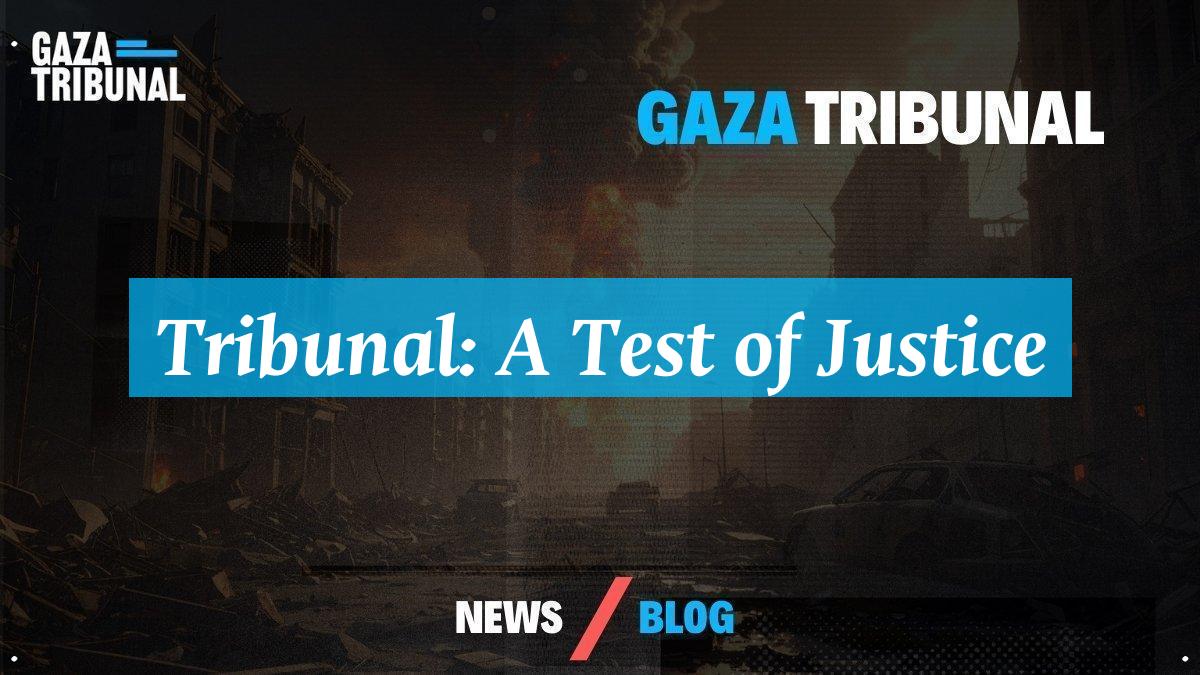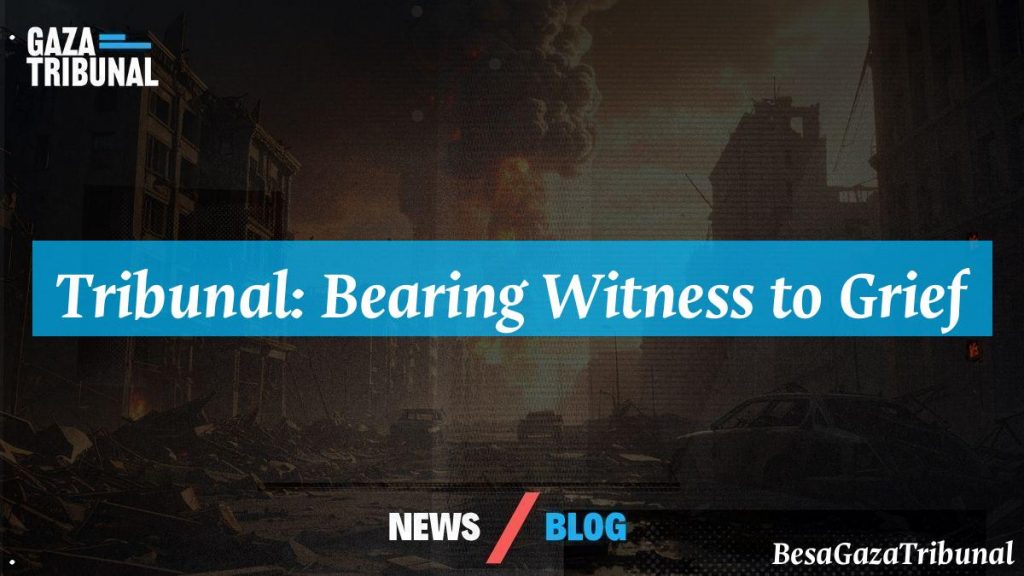In a world filled with turmoil and uncertainty, the calling to document the truth has never felt more urgent. Mohammed Qreiqeh, a determined journalist from Gaza, embodies this mission amidst profound personal loss. Having lost his loved ones to the horrors of war, he embraces journalism not merely as a role but as a solemn responsibility. However, the weight of his grief is immeasurable. For him, each report is a lifeline, an effort to preserve the stories of those who can no longer speak. Yet, in the heart of this chaos, one must ask: how does one find the strength to continue telling these stories while grappling with such relentless pain?
The full measure of what must be grasped concerning, the Gaza War Tribunal looms in the background, raising questions about accountability and justice for the devastation faced by innocent lives. As Mohammed carries the burden of his family’s memory, he also reminds us of the collective duty to bear witness. Each story he tells serves as a reminder of the human experience—an experience intricately woven with love, loss, and resilience. It compels us, as a global community, to confront the harsh realities of conflict, to recognize the voices of the silenced, and to ensure that their struggles are not forgotten. Indeed, the significance of reporting goes beyond mere documentation; it’s about keeping the essence of humanity alive even in the darkest of times.
A Journalist Shaped by War
Mohammed Qreiqeh stands as a powerful symbol of resilience. He doesn’t just report on the events unfolding around him; he lives them. “Before being a media professional, I am one of the direct victims of this war,” he shared, a poignant reminder of the blurred lines between reporter and subject. His experiences shape his narratives, making each story personal. For him, Gaza isn’t merely a backdrop; it’s a living entity filled with memories, grief, and loss. Every report he files carries the weight of his family’s suffering.
Since 2012, Qreiqeh has immersed himself in journalism. He has witnessed the landscape of Gaza transform, and with it, the lives of its people. “This war is completely different,” he stated, his tone heavy with the burden of his reality. The scars of conflict run deep, affecting his family and friends. His commitment to journalism stems from his desire to document these truths. He feels a profound responsibility to share stories that otherwise remain buried in silence. The act of reporting becomes a form of resistance, a way to honor those lost.

The Last Days with His Mother
In the depths of his heart, Mohammed carries the memory of his mother, Naima. She battled chronic illnesses yet remained a steadfast figure in his life. Together, they faced displacement, moving more than fifteen times amid chaos and destruction. “We were displaced more than fifteen times,” he recalled, his voice laden with sorrow. Each transition stripped them of stability, forcing them into the streets, where bombs rained down and danger lurked. “It was the last look,” he whispered, recalling the final moments spent together.
When Mohammed learned of his mother’s fate, his world shattered. Survivors recounted the horror—they executed her near a maternity ward. “My mother was killed on purpose,” he said, his voice breaking. Such brutal realities leave scars that linger long after the violence subsides. The pain of loss envelops him, yet he channels that grief into his reporting. Each story he shares becomes a tribute to her memory. It’s a way for him to keep her spirit alive, even in the absence of her physical presence.
Hunger, Displacement, and the Struggle to Survive
Life in Gaza isn’t just about loss; it’s also about survival. Mohammed paints a grim picture of daily existence. Many nights, he and his family slept on concrete, with only the stars for comfort. The sounds of war echoed around them, a constant reminder of their precarious situation. “I thought I would die,” he admitted, recalling the desperate measures he took to find food for his mother. Each act of defiance against starvation feels monumental. “It was famine,” he said, “there was nothing else to eat.”
Now, he faces similar struggles with his own children. They ask for simple things—a biscuit, a trip to the sea—but he can only offer empty promises. “What is the fault of my children,” he pondered, “that even the simplest needs cannot be met?” Such questions haunt him, serving as painful reminders of the harsh realities. Yet, he remains determined, fighting not just for his own survival but for his children’s future. He dreams of a day when they can experience joy and safety.
Carrying the Weight of Journalism Under Threats
Despite the overwhelming grief, Mohammed continues his work as a journalist. He understands the vital role he plays in documenting the truth. “We must deliver the message,” he asserted, knowing that silence erases the memories of those lost. The threats he faces are relentless. Journalists like him receive warnings, their lives hanging in the balance. Many have been arrested or killed, yet they persist. “If we do not tell it, who will?” he asked, a poignant question that resonates deeply. For more insights, visit our news category.
His commitment to journalism serves as a lifeline. It connects him to the memories of his family and friends. Each story he shares acts as a shield against forgetting. “These are our streets, our families, our massacres,” he emphasized. The urgency in his voice reflects the reality that many ignore. Mohammed embodies the spirit of resistance, reminding us that stories matter. They hold power, and through them, hope can emerge even amid despair.
Witnessing the Storming of Al-Shifa in Gaza
Among the darkest experiences, Mohammed endured the storming of Al-Shifa Hospital. He found himself trapped for sixteen hours amid chaos and suffering. Wounded patients cried for help, while soldiers enforced brutal control. “Imagine sitting for sixteen hours without standing, without water,” he recalled, the horror etched in his memory. Shells fell around him, and he witnessed unimaginable violence. The brutality left a lasting impact, shaping his understanding of the conflict.
Even now, he grapples with the trauma of those moments. The memory of his mother’s voice echoes in his mind as she called for him. “My son, come back, they hit you,” she shouted. Such memories haunt him, a constant reminder of loss. Life after such tragedies feels heavy and burdensome. Yet, through it all, Mohammed remains committed to telling the stories that need to be heard. He recognizes the power of memory and the importance of sharing these truths.
Why Gaza’s Stories Must Be Told
Silence cannot prevail in the face of such suffering. Mohammed understands the necessity of speaking out. “This is not only about us,” he stated firmly, highlighting the broader implications. Each story he shares represents a fight for justice. Journalists in Gaza become witnesses to a history that demands recognition. They carry the memories of those who cannot speak, standing as a testament to resilience. “This is what breaks me the most,” he admitted, revealing the weight of his responsibilities.
Through his work, he honors the lives lost, ensuring that their stories remain alive. The world must not forget the anguish and struggles faced by so many. “These stories are not only about Gaza,” he reflects, “they belong to humanity’s memory.” They serve as a reminder of the need for compassion and understanding. As we listen, let’s commit to remembering and sharing these truths. Thank you, Mohammed, for your courage and for shining a light on the darkness. Your voice matters. For further information, visit Gazatribunal’s homepage. Source: Witness Eye.


